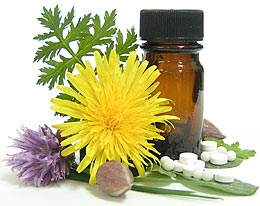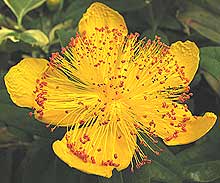Homeopathy for Horses
 Homeopathy for Horses is a holistic system of healing
horses based on the use of highly diluted natural substances
to trigger a healing response in the horse's body.
Homeopathy for Horses is a holistic system of healing
horses based on the use of highly diluted natural substances
to trigger a healing response in the horse's body.
The basic principal of equine homeopathy is that any substance that can cause a disease, can also be the principle cure - "like cures like".
If given in stronger doses to a healthy horse the chosen medication would produce the symptoms the medicine is prescribed for.
This applies to horses and ponies as well as to human patients.
The more dilute a remedy, the more potent and effective it is.
The difference between using conventional drugs on your horse or pony and equine homeopathic remedies is that the drugs treat the symptoms and homeopathy is designed to treat the cause of the horse's symptoms.
After herbal medicine, homeopathy is the second most widely used health care system in the world.
Homeopathy has benefits for many different types of illnesses and injuries including equine colic , rain scald and rain rot, ringbone, ringworm, sweat bumps and bruised soles.
|
|
HORSE CARE ARTICLES AND EQUINE ADVICE
Haylage
| Equine
Thrush |
Choke | Cracked
Heels |Colic
in horses |Removing
Bots | Angleberry
- wart virus | Devil's
Claw | Bran
mash |
Hydrotherapy
|
Mud fever
| Sarcoids
Benefits
and dangers of feeding Garlic to horses | Cushings
disease | Redworms
|
West Sussex livery | Horse
feed supplies - Norfolk | Horse
bedding advice | Iridology
| Bog
Spavins | Equine
Dentistry | Hoof
care tips | Aubiose
| Feeding
Vegetables horse |
How to feed a horse suffering from Liver disease | Calming
Herbs | Buying
a Trailer
A guide to equine homeopathic treatments and homeopathy remedies for horses.
With advice on dosage for Equine homeopathy for horses using arnica for bruising,
Arsenicum and aconite for colic, nux vomica and thuja
